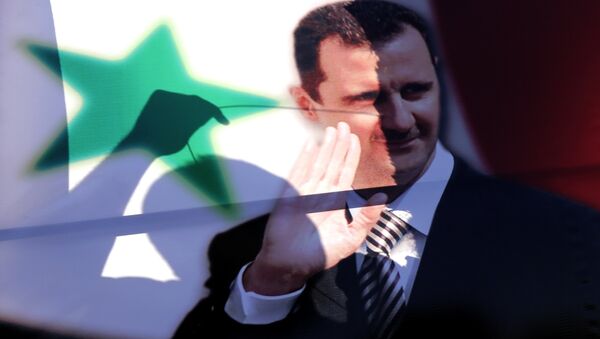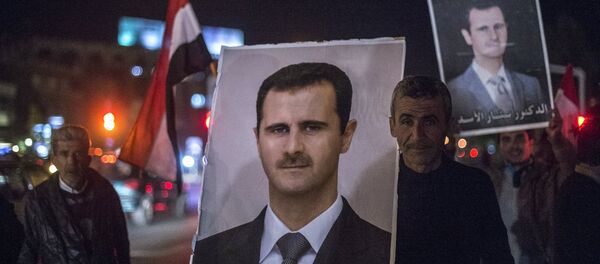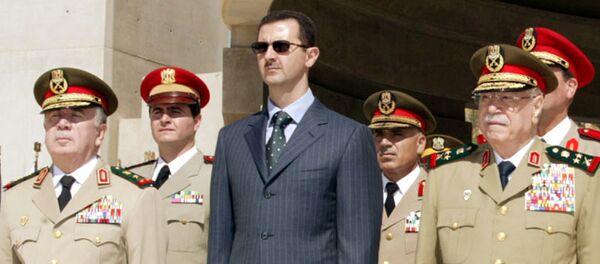While CIA Director Mike Pompeo insists the US "has solid evidence" that the Syrian Arab Army's used chemical weapons in Khan Shaykhun on April 4, these claims are completely detached from reality, Sergey Goncharov, head of the Alpha Anti-Terrorist Unit's International Association of Veterans, says.
The CIA director announced recently that the US intelligence community had begun to uncover what "exactly" had happened in Syria on April 4, 2017.
"I told him [Trump] that the intelligence community had concluded that the chemical weapon had indeed been used in the attack and it had been launched by the Syrian regime…. I knew that the intelligence community had solid evidence…. I said to Mr. President that we have high confidence that this really took place," Pompeo said Tuesday at the Intelligence National Security Alliance dinner.
Damascus refuted the claim and called attention to the fact that the nation's entire chemical arsenal had been destroyed under the supervision of the Organization for the Prohibition of Chemical Weapons (OPCW) a few years before.
However, before any investigation into the issue was carried out, the US launched 59 Tomahawk cruise missiles at the Syrian Arab Army's Shayrat airfield on April 7 as "retaliation" for the alleged use of chemical weapons.

To complicate matters further, Pulitzer Prize-winning journalist Seymour Hersh published a chat protocol of a security advisor and an active American soldier on duty at a key base in the Middle East, which indicated that the US military on the ground "knew" that no chemical attack had taken place in Khan Shaykhun back on April 4.
Speaking to Radio Sputnik, Goncharov called the recent statement by CIA Director Pompeo yet another "fake."
"This topic has been discussed many times. Test tubes were tossed at the highest level, the statements that there was evidence of the presence of chemicals were made, and the bombings were conducted," Goncharov said referring to Colin Powell's infamous speech at the UN ahead of the US invasion of Iraq.
"And here we go again," the Alpha veteran highlighted.
The claims that Assad had used chemical weapons and that the US has evidence to prove it look like some sort of "fake," the counterterrorism expert emphasized.
In his opinion, the recent statement could be part of the preparation for a certain provocation against the Syrian government.
"There have already been many provocations," Goncharov said.
Still, the crux of the matter is what exactly Vladimir Putin and Donald Trump decided regarding the potential US-Russian cooperation in Syria during their first-ever meeting on the sidelines of the G-20 meeting in Hamburg.
"If [Russia and the US] found… at least some points of convergence on the armistice in certain parts of Syria, then, I believe, to date, no provocation would change the Russo-American relationship for the worse," Goncharov noted, adding that there are rumors that Trump agreed to Assad's staying in power.
The media outlet pointed out that the new strategy involves allowing Assad to remain in power; acquiescing to the idea of "safe zones" proposed by Russia and its allies; and Russo-American military cooperation to stabilize the situation on the ground "including the use of Russian troops to patrol parts of the country."
For his part, Rex Tillerson stated ahead of the Putin-Trump meeting that Washington was considering whether to team up with Russia on Syria.
"The United States and Russia certainly have unresolved differences on a number of issues, but we have the potential to appropriately coordinate in Syria in order to produce stability and serve our mutual security interests," Tillerson said in an official statement on July 5.




